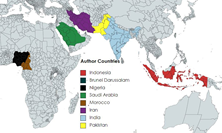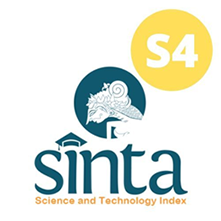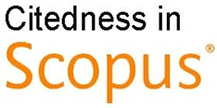Design of Incu Analyzer for IoT-Based Baby Incubator Calibration
Abstract
An incubator analyzer, serving as a calibration tool, is utilized to measure diverse parameters such as temperature, mattress temperature, humidity, airflow, and noise in infant incubators. The present study focuses on the development of the Design Incubator Analyzer for IoT (Mattress Temperature and Humidity) with LCD and ThingSpeak display, specifically designed for calibrating baby incubators. The primary objective is to design and develop an Incubator Analyzer as a calibration device for assessing various parameters in infant incubators, encompassing temperature, mattress temperature, humidity, airflow, and noise. The design of this calibration device incorporates a Thermocouple Type-K sensor for baby incubator mattress temperature parameters, a DHT22 sensor for humidity parameters, and an ESP32 microcontroller. The ESP32 processes data from the Thermocouple Type-K and DHT22 sensors to generate values for mattress temperature (TM) and humidity (RH), which are then displayed on LCD and ThingSpeak displays. The device underwent rigorous testing against an established measuring device, the INCU II. In the study, the TM parameter or mattress temperature exhibited the smallest error of -0.0140% at 35°C and the largest error of 0.0584% at 36°C. Concerning the humidity parameter, the largest error was 0.0570% at 32°C, while the smallest error was 0.0207% at 35°C. Overall, the Incubator Analyzer Design for IoT-Based Baby Incubator Calibration device, or IoT-based Incubator Analyzer, demonstrates potential usability following the planning and execution phases, including a thorough review of existing literature. To enhance user experience during the calibration process, an IoT system was developed for data transmission over Wi-Fi, presenting results on the ThingSpeak platform in real-time

This work is licensed under a Creative Commons Attribution-ShareAlike 4.0 International License.
Authors who publish with this journal agree to the following terms:
- Authors retain copyright and grant the journal right of first publication with the work simultaneously licensed under a Creative Commons Attribution License that allows others to share the work with an acknowledgement of the work's authorship and initial publication in this journal.
- Authors are able to enter into separate, additional contractual arrangements for the non-exclusive distribution of the journal's published version of the work (e.g., post it to an institutional repository or publish it in a book), with an acknowledgement of its initial publication in this journal.
- Authors are permitted and encouraged to post their work online (e.g., in institutional repositories or on their website) prior to and during the submission process, as it can lead to productive exchanges, as well as earlier and greater citation of published work (See The Effect of Open Access).











